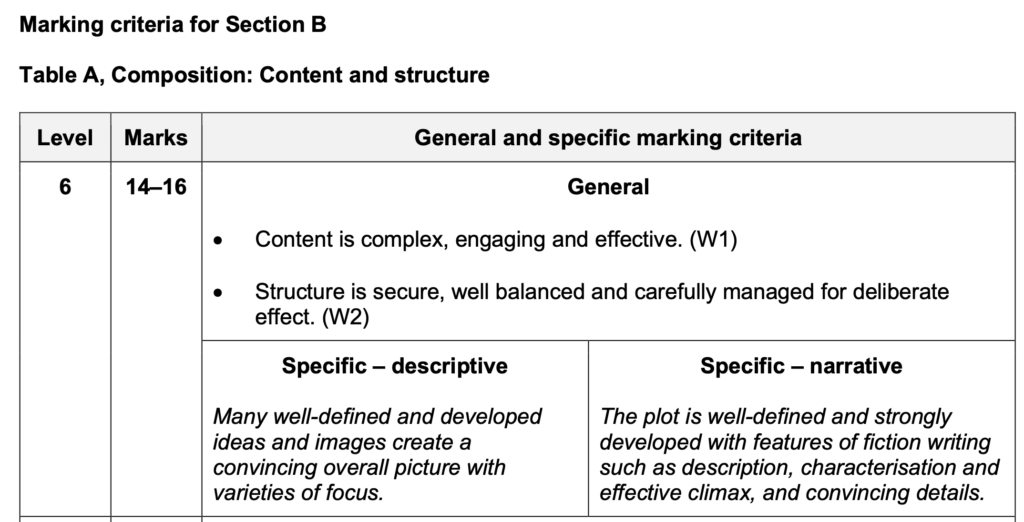On this website, I very strongly emphasize the importance of rubric criteria.
Of course I should, and so should your teachers!
Rubrics tell you exactly how your papers are going to be marked, what is considered good, and what you should be doing in order to get the highest possible marks for every single piece of writing that you produce for this course, whether in class or in your final IGCSE exams.
There’s a small problem with relying purely on rubric criteria though:
They tell you what ‘good’ is, but they don’t give you the pathway.
Consider a few of these examples, demonstrating Level 6 from both descriptive and narrative writing in paper 2.


To get a Level 6 in Composition, Content and Structure, you must create complex, engaging and effective content. But what does it mean that content is complex, engaging and effective?
You also need to have a secure, well-balanced and carefully managed structure for deliberate effect. But what does it mean that your structure is secure, well-balanced and carefully managed?
As a student who is just hearing these words or reading them out on the screen, chances are you don’t have a good sense of what this entails.
Anybody can read the criteria and understand what they mean. You might even get a picture of them, but reading criteria isn’t the same as internalising or embodying a skill. A good example of this is sports.
Everybody knows that in order to run well and win an Olympic gold medal, you need to run really fast – but does knowing that you need to run fast mean that you can immediately clock 9.57 seconds for the 100 meter dash to beat Usain Bolt’s world record?
Most of you who have a little bit of common sense would know that that’s not really possible, or even if it is possible, it’s the territory of fantasy, because in order to get yourself to be that good of a runner, you need to actually practice, refine, and hone different aspects of your craft through running. In a similar way, the writer has to hone and refine aspects of their craft through writing.
Now, one might say that these are different, but they might be more similar than you think because writing is a skill, in the same way that running is a skill, and both can be trained through time and dedicated practice.
At the same time, there are efficient training methods and inefficient training methods, as you go about your day and you think about the journey that you want to have towards your goal.
I hope you will think a bit about that, consider joining premium memberships if you haven’t already, and gain access to lots of different written examples and other great resources for your IGCSE preparations.
And I hope that you have an amazing one, taking a step forward in a small or a big way, as you move forward on your journey!
Yours,
V.
